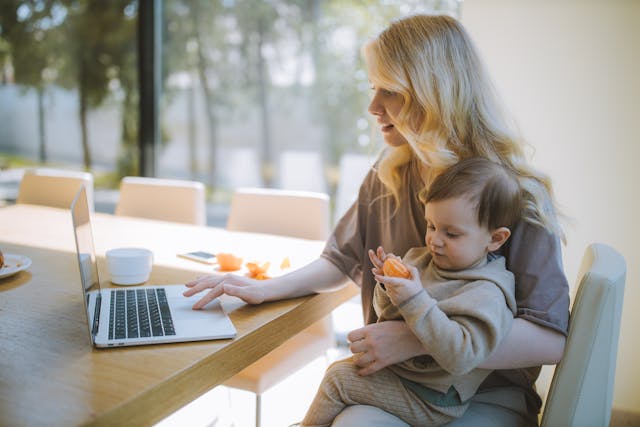As a parent, it can be tough to keep your house tidy. Kids will be kids, so inevitably, they’ll leave it in a messy state during the course of the day. This means there is always something that needs to be thrown away.
While it’s tempting to just chuck everything in the bin and leave it for the council waste collectors to remove, that is not the most responsible approach.
Over 2 billion tonnes of solid municipal waste are produced worldwide every year, which can cause significant damage to the environment.
In response, many international governments have implemented policies that are working towards a zero-waste future. Although it won’t be happening any time soon, there are some things we can do on an individual basis to reduce the amount of rubbish that goes to landfills and, therefore, our carbon footprint.
In this post, we will highlight five of the best ways to dispose of household waste responsibly. By doing this, you can help make the world a greener place.
1. Recycling
Did you know that up to 75% of all waste can be recycled?
Although most people use the recycle bins the council provides, many do not use them properly. Overall, that is because they are unaware of which items need to be recycled and how to do it.
For example, you must never mix hazardous waste such as paint cans, tyres, and bulbs with general waste. Not only does this put the health of the waste disposal workers at risk, but it can also pollute drinking water and other waterways if it ends up in a landfill.
Subsequently, the best way to reduce the risk of your rubbish damaging the environment is to collect light bulbs, electronics, batteries, glass, metal, paper, compost, and plastic in different containers.
When you are ready to get rid of this waste, get in touch with 1300 Rubbish or any other company that can dispose of them responsibly for you.
2. Reuse
If you look for ways to reuse what you already have rather than throw everything out, you can significantly reduce your household rubbish.
For instance, old clothes can be used as cleaning rags or to repurpose furniture, while takeaway containers and jars can store leftover foods or items like pens, paintbrushes or paper clips.
Moreover, when kids are in the house, their imagination can turn anything into a game. So, let them use old washing-up liquid bottles and boxes for creative play.
3. Donate
You’ve no doubt heard the saying, ‘one man’s trash is another man’s treasure’. Well, this is certainly the case for some of the things that end up in landfill.
Items like clothes, old toys, games, books and half-used arts and crafts products can all be given to charity, kindergartens, schools, hospitals, community centres or even coffee shops so that others can benefit from them.
Likewise, old computers, mobile phones, and other electronic devices can also be donated to community centres or charitable organisations. Just make sure their memories are fully wiped first.
4. Composting
Apparently, about 34% of everything that gets thrown out is food waste.
However, rather than just chucking your scraps or out-of-date food items in the general bin, you can turn this into an outstanding resource for your garden just by composting it.
To do this, simply fill a bin or large container with food waste, such as tea bags, vegetable peelings, and fruit. You can also add plant pruning and grass cuttings.
Eventually, this will break down organically to produce a matter that provides an important source of nitrogen and moisture to your garden when you plant it.
If you don’t have much in the way of plants or flowers that can benefit from doing this, you can always give the substance to a public garden or spread it around a local park.
5. Reduce how much potential waste you bring home
While these strategies focus on the disposal of your household waste in a responsible fashion, it is a good idea, congruently, to reduce the need to do so.
One of the best ways to do this is to take steps to reduce the amount of potential waste you bring into your home.
This could involve using cloth bags rather than plastic bags to bring your shopping back from the supermarket. Likewise, it is a good idea to buy refills for products like shampoos, liquid soaps, and washing-up liquids rather than bottles.
Other things you can do include buying fruit and vegetables from farmer’s markets, which tend to be packaged in boxes and not wrapped in plastic.
You may also consider making your own cleaners and detergents, as many of these products come in non-recyclable bottles.
A quick search on Google or YouTube should reveal plenty of ways to make everything from hand soaps and glass cleaners to homemade shampoos and bathroom and kitchen cleaners.Not only can this be a fun activity to do with kids, but it can also reduce your carbon footprint.
Proper waste disposal is essential for environmental health and for preventing pest infestations in our homes. By adopting responsible practices, we can protect our living spaces and contribute to a cleaner, safer community.




